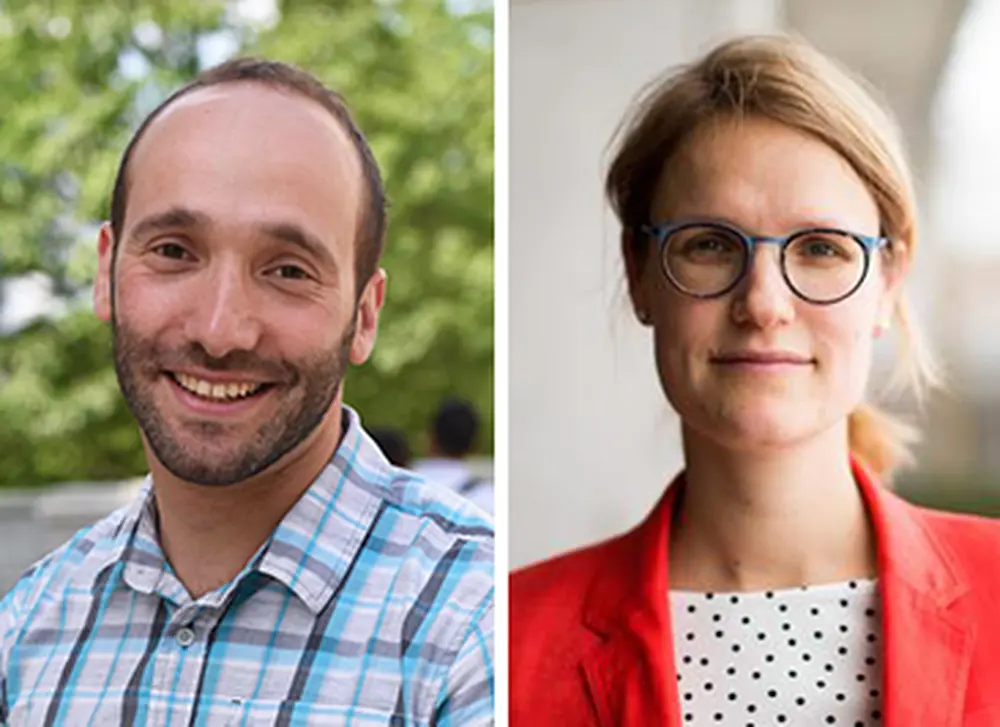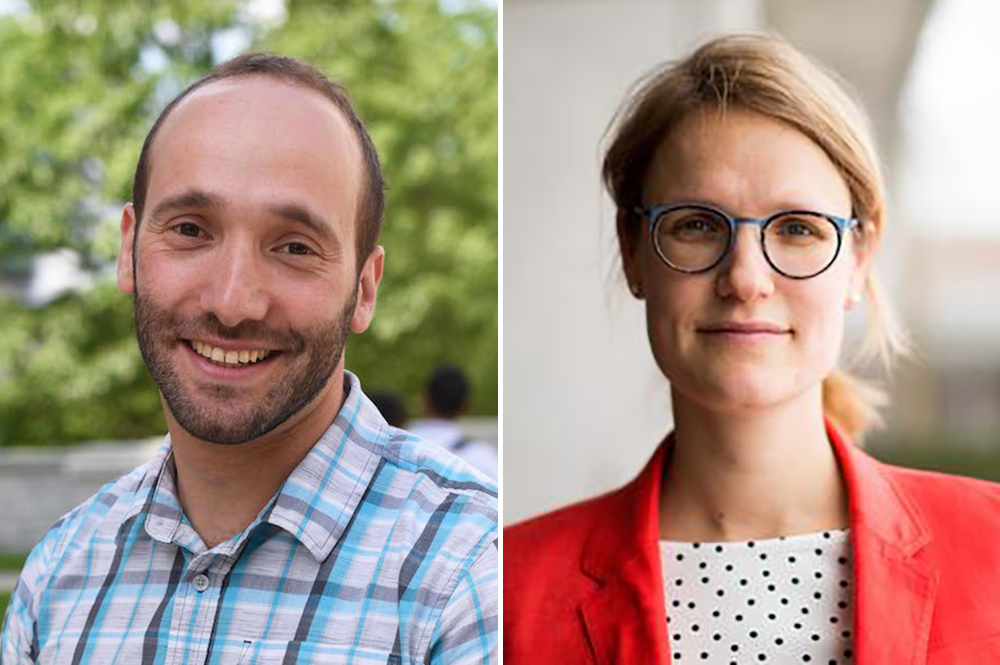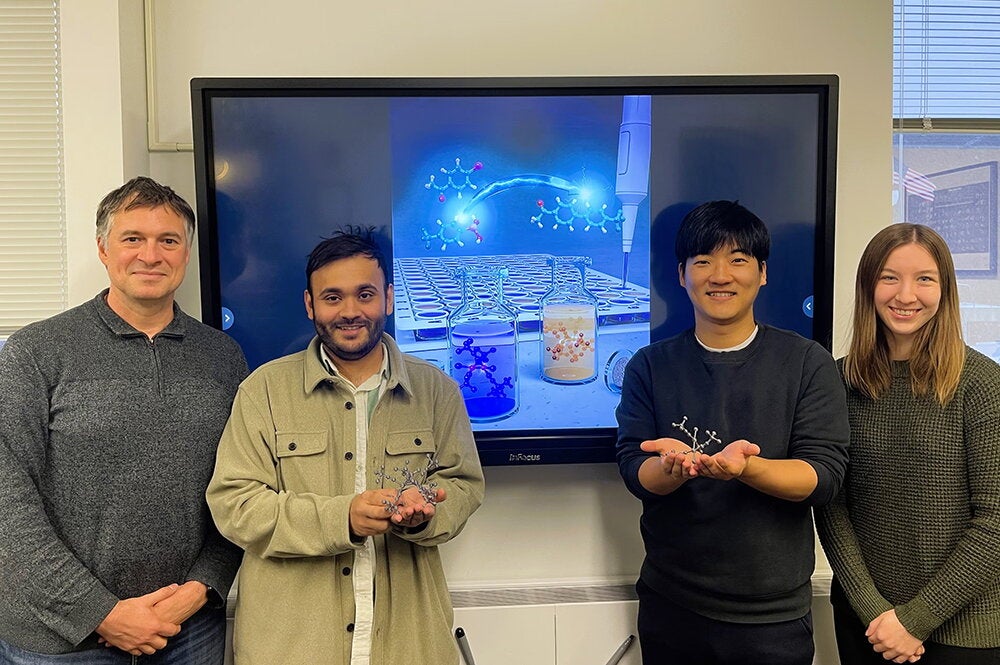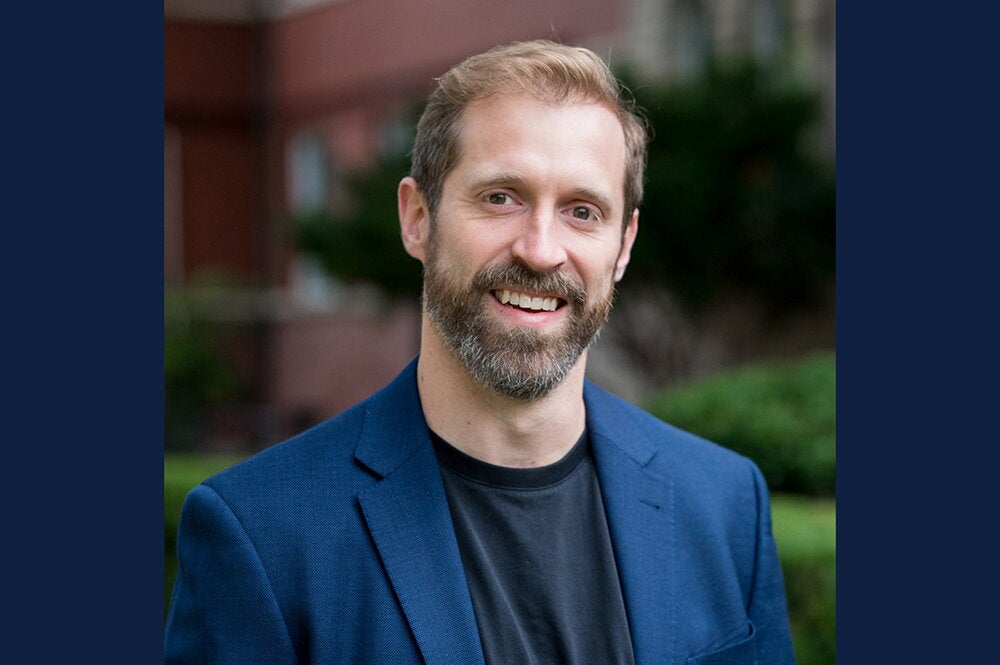

A chemistry professor and a mathematics alumnus from the University of Illinois have received highly touted Packard Fellowships in Science and Engineering for 2018.
Renske van der Veen, a professor of chemistry who is also affiliated with the Frederick Seitz Materials Research Laboratory and the Department of Materials Science and Engineering, and Michael Baym (BS, ’03, mathematics) were among 18 researchers selected nationwide to receive the fellowship from the David and Lucile Packard Foundation, which provides $875,000 over five years for an early-career faculty member to pursue research.
The Packard Fellowships in Science and Engineering, which have been issued since 1988, are designed to give young faculty maximum flexibility in how they use the research funding. The fellowships go a long way toward boosting a faculty member’s career; many Packard Fellows have gone on to receive other significant awards, including the Nobel Prize, MacArthur Fellowships, and elections to national academies.
“It really is amazing to see what brilliant researchers can do when given the room to take big risks,” said Frances Arnold, chair of the Packard Fellowships Advisory Panel, 2018 Nobel Laureate in Chemistry, and former Packard Fellow, in a release. “And I’m not only talking about their impressive contributions to their fields—I’m also talking about building entirely new disciplines and giving back to the next generation of scientists.”
Van der Veen came to Illinois in 2015 as an assistant professor in the Department of Chemistry. Her research focuses on the development of materials that can efficiently convert and store energy from the sun and nanomaterials that can rapidly switch between two states, allowing them to be used in data storage devices. She develops new ultrafast microscopy techniques to visualize what is happening on a trillionth-of-a-second time scale.
Martin Gruebele, chair of the Department of Chemistry, notes that the honor “demonstrates the high regard the scientific community places in Renske’s work in ultrafast imaging and dynamics of complex materials.”
Michael Baym earned multiple undergraduate awards during his time at Illinois, including being named the most outstanding undergraduate student in mathematics and earning the highest distinction in his senior theses in mathematics and chemical biology. After leaving Illinois he went to the Massachusetts Institute of Technology for graduate school and eventually received several research fellowships, including the Roche Postdoctoral Fellowship for scientific leadership in the creation of innovative healthcare products and solutions.
Now an assistant professor at Harvard Medical School, Baym is studying antibiotic resistance as the principal investigator of his research group.
“We study the evolution of antibiotic resistance using experimental and computational approaches,” he said in a profile in U of I’s Math Times earlier this year.


